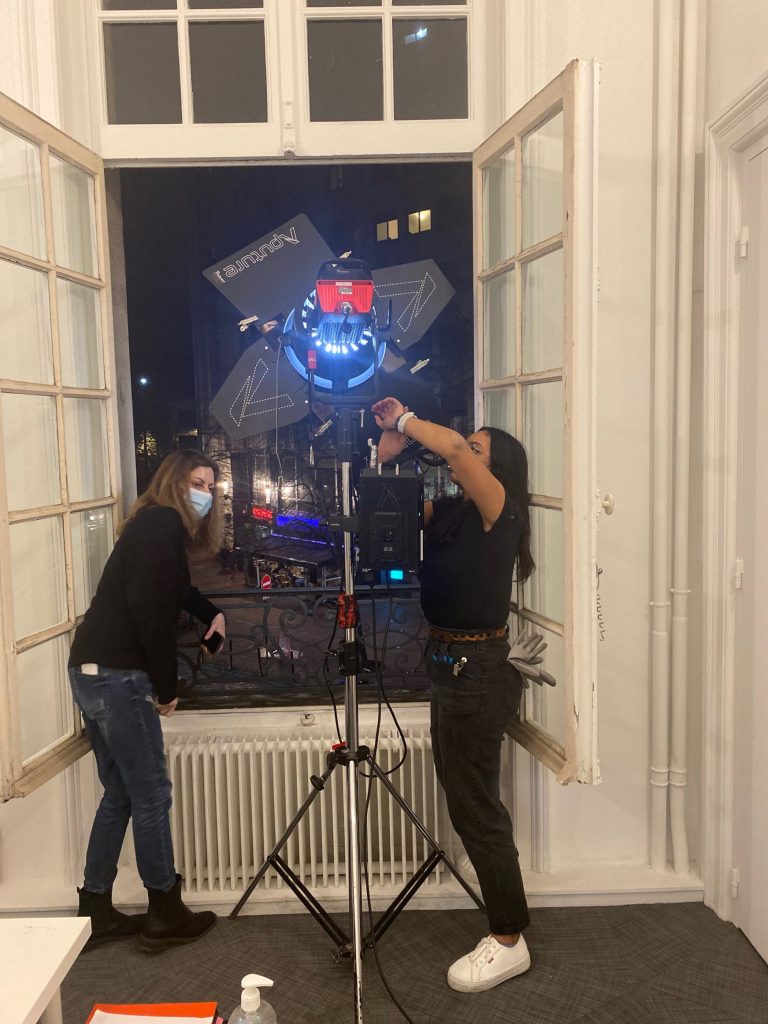By Laurence Herszberg, directrice générale de Séries Mania
Why aren’t we seeing young people from priority neighbourhoods, isolated rural areas or suburbs involved in the making of television series? While some progress has been made in terms of the representation of minorities on screen, progress that is still to be improved on, little has been done to secure them a place behind the camera.
In order to produce teams that are more representative of society and to overcome barriers to enter our professions, it is imperative that more inclusive training courses are made available.
Collectif 50/50 has recently updated its research study on the place of women behind the camera. In the last ten years (2013-2022), less than 30% of films or television series in France were made by women. Since the call was launched for more equality in audiovisual teams 5 years ago, progress has been slow, and the glass ceiling is still a reality. Progress must be made, both in terms of inclusion and equality.

English-speaking platforms and, in particular, American ones were the first to tackle the subject of representativeness in television series. By targeting populations that had been neglected by traditional TV, they woke up the audiovisual sector. Their success and unbridled creativity, with series such as Sex Education or Elite, have prompted an awareness of diversity issues. These television series were highly popular with audiences and this should encourage the industry to step up its efforts.
The issue is very clear: the television series industry must better represent society in order to be more creative and recruitment of collaborators must reflect society’s diversity, and thus, its richness.
The first French organisations to take on this issue offered free training sessions to young people in underprivileged neighbourhoods. The path was opened by pioneers such as L’école Kourtrajmé in Montfermeil, CinéFabrique in Lyon or 1.000 visages in the Île-de-France region.
More recently, the Springboard programme at the Series Mania Institute in Lille, offers an introductory course in professions within the television series industry that is accessible without qualification requirements. Screenplay writing, directing, photography, sound engineering, stage management, production, editing, post-production, set design: each profession is introduced through practical experience. There are three main objectives: to introduce young people to these professions, to help them find their place within the professions and to unleash their talents
Without traditional professional codes, these young people bring a fresh approach and show unprecedented creativity.
We were impressed by the horror miniseries that our students created in barely six weeks; a group of 20 young people that we have accompanied and seen transform over time. These young people are creative and unaware of their potential, we must make room for them. However, geographical, social, and financial barriers remain tremendous obstacles. The concentration of series production in the Île-de-France region exacerbates the disparities; it is hard to move around, expensive to find housing, etc.
![[TRIBUNE]](https://seriesmania.com/institute/wp-content/uploads/sites/4/2023/07/photos-smi-tremplin-nablezon-39-1024x684.jpg)
The plan France 2030, “La Grande Fabrique de l’Image,” will bring corrective measures and enable better representation by promoting the decentralisation of the audiovisual industry. This change is long overdue. Two thirds of audiovisual industry graduates in France are concentrated in the Île-de-France region. In 2019, according to the SACD (Société des Auteurs et Compositeurs Dramatique), around 29% of screenplay writers were women, and the number of professionals in our sector should double by 2030.
We must open up the sector so that all these future professionals will better represent those who shape our country.
Be it screenwriters, production managers in the audiovisual industry, directors, or set technicians, the needs are huge and the sector is under pressure. There is no time to waste.
Let us continue to open our professions to young people, to all young people. In divided societies, television series, a major cultural phenomenon, can play an important role in promoting social cohesion and that begins with training teams with diverse profiles.
Snow, a student of The Springboard.
« Avant, j’avais effectué un service civique dans une école. Je pensais que trI used to do some civil service work in a school, thinking that working with children was my vocation. But I quickly realised that deep down inside me, a light was waiting to shine in the arts. »
